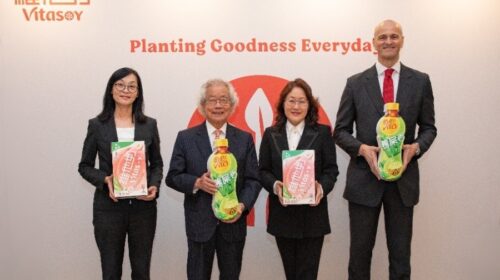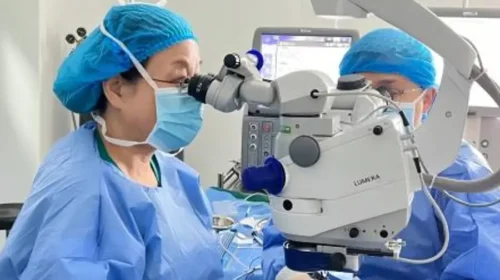Uxin finds new friend on difficult road to profitability

The used car superstore operator will receive $15 million in new funding from shared ride company Dida, equal to more than four times its cash reserves at the end of March
Key Takeaways:
- Dida will provide $15 million in new funding to cash-challenged Uxin by purchasing $7.5 million in the latter’s shares and providing a $7.5 million loan
- Uxin had just $3.3 million in cash at the end of March, and has continually warned of financial challenges as it races to operate its used car superstore model profitably
By Doug Young
Ever wonder what it would feel like to live on life support for two full years?
That’s a bit how it feels for Uxin Ltd. (UXIN.US), which has continually flagged the precariousness of its financial situation to investors over that time, as it races against the clock to prove the viability of its used car superstore business model. The company received a small but important vote of confidence last week from shared ride company Dida Inc. (2559.HK) in the form of a modest $15 million in new financing.
While that amount may not seem huge, it’s more than four times the meager 23.3 million yuan ($3.3 million) in cash that Uxin had in its coffers at the end of March, down from 92.7 million yuan a year earlier. That shows just how quickly Uxin burns through cash as it tries to make its new business model profitable. The small size of this latest infusion also reflects how the company is having to scrape up funds any way it can to keep running.
But at least there’s someone out there still willing to give the company money. One of its earlier backers was electric vehicle (EV) startup Nio (NIO.US; 9866.HK). But Nio has stopped providing funds as it faces its own cash challenges in China’s overheated EV market. Uxin also has strong backing from regional governments where its superstores are located, though most of those funds are getting pumped back into its two current locations in the cities of Hefei and Xi’an.
The latest funding from Dida comes in two parts. One will see Dida purchase $7.5 million worth of Uxin’s shares for the equivalent of $1.4575 per American depositary share (ADS), according to concurrent announcements last Friday by Uxin and Dida. The price represents a discount of about 17% to Uxin’s stock price over the previous 60 trading days, which seems like a reasonable discount given the precariousness of Uxin’s situation. The amount would give Dida between 1% and 2% of Uxin’s shares, according to our calculations.
In addition, Dida would provide another $7.5 million to Uxin in the form of a loan. That loan has a relatively short term of just 18 months, showing that Dida is far from confident enough to lend its new partner money on a long-term basis. Dida said it hopes to find synergies with Uxin in China’s fast-growing used car market, partly by selling Uxin’s used cars to its own drivers over its ride-sharing platform.
“Through the cooperation with Uxin Ltd., the company expects to provide additional aftermarket services to and promote used-car transactions for private car owners on its platform and attract additional private car owners to enhance its passenger capacity,” Dida said in its announcement.
Uxin investors weren’t too impressed by the deal, though they didn’t frown on it either. The company’s stock rose by a slight 0.7% in Friday trading in New York, though it’s down 78% so far this year over the bigger concerns about its long-term viability. Dida shareholders were less impressed, bidding down its shares by 8% in Friday trade in Hong Kong.
Truth be told, the size of the investment isn’t huge and Dida could probably afford to lose the money without too much pain if Uxin fails to repay the loan. Instead, the negative reaction by Dida’s shareholders probably reflects broader investor concerns about the wisdom of this investment in such a financially shaky company.
Gaining traction, but slowly
We’ll spend the second half of this review looking at Uxin’s situation, which is dicey due to its low cash levels. The company is also getting caught in the vortex of vicious price wars that are hammering China’s used car market through a toxic mix of stiff competition and growing consumer caution as the country’s economy slows.
The economic slowdown could actually work to Uxin’s advantage over the longer term as many consumers who would have previously insisted on new cars downgrade their plans to buy quality used cars instead. Uxin should have a natural advantage over China’s thousands of smaller used car dealers in that regard, since its scale gives it far greater resources to recondition cars properly and provide higher-margin after-market services like insurance and maintenance.
That model is similar to the one used by U.S. giants Carmax (KMX.US) and AutoNation (AN.US), which have found steady business and profits selling used cars through superstore formats. But, of course, Uxin will need to solve its problem of simply surviving to see that day when it can finally become profitable.
To that end, Uxin dangled the possibility of operating profitability to investors in its latest quarterly results for the three months to March, which it released at the end of July. The company reported adjusted EBITDA for the period of 40 million yuan, which was roughly the same as the 41 million loss a year earlier. But it noted that its adjusted EBITDA for the 12 months through March this year narrowed by 40% to 176 million yuan versus a year ago, as its gross margin improved sharply to 5.9% from 1.2% over that period.
As its operations grow and its profitability improve, it said it believes it can reach adjusted EBITDA profitability in the three months to this December.
The narrowing losses are coming as Uxin gains experience and scale that are allowing it to improve its profitability. The company’s revenue fell 7.2% year-on-year to 319 million yuan in the three months to March, the fourth quarter of its fiscal year. Its retail car sales for the quarter actually rose by 38% to 3,124 units, showing how the price wars were undercutting its prices. At the same time, the company’s cost of revenue for the quarter fell by 24%, far outpacing the rate of revenue decline as it was able to operate more efficiently.
The company expects to return to revenue growth in its current fiscal year as it opens two to three more stores this year to complement the two existing ones. As that happens, it said, it expects to report its revenue for the three months to June to reach between 390 million yuan and 410 million yuan, which would be up by a strong 38% at the midpoint year-on-year. Furthermore, it forecast over 150% retail sales growth in its current fiscal year that runs through next March versus the previous year.
Such growth, combined with its positive adjusted EBITDA milestone in the December quarter, would be quite significant for the company, taking big pressure off its constant need for new cash. Now, it just needs to stay in business long enough to reach those milestones.
To subscribe to Bamboo Works free weekly newsletter, click here






